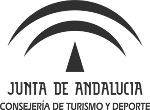Genetic manipulation in sports performance. Genes with effect on muscle behavior
Abstract
Biomedicine in its genetics branch has experienced great scientific and technical progress in recent years, especially since the discovery of the human genome. The advances added have surpassed the scope of the pathology to continue the studies in the field of health, which includes the investigations of physical activity and sport. Athletes, whose goal is to achieve maximum performance, can use this banned tool of genetically modified cells. Abuse of knowledge and techniques acquired in the field of gene therapy is a form of doping, and is prohibited. So far there is no evidence that this genetic doping has been practiced although it is likely to be used in a short period of time.
In the present revision are analyzed the aspects related to the genetic manipulation in the sport performance and especially the genes that have a direct effect on the muscular behavior. We like to done more information about the current reality, and identify and analyze the most relevant proteins based on genetic doping.


